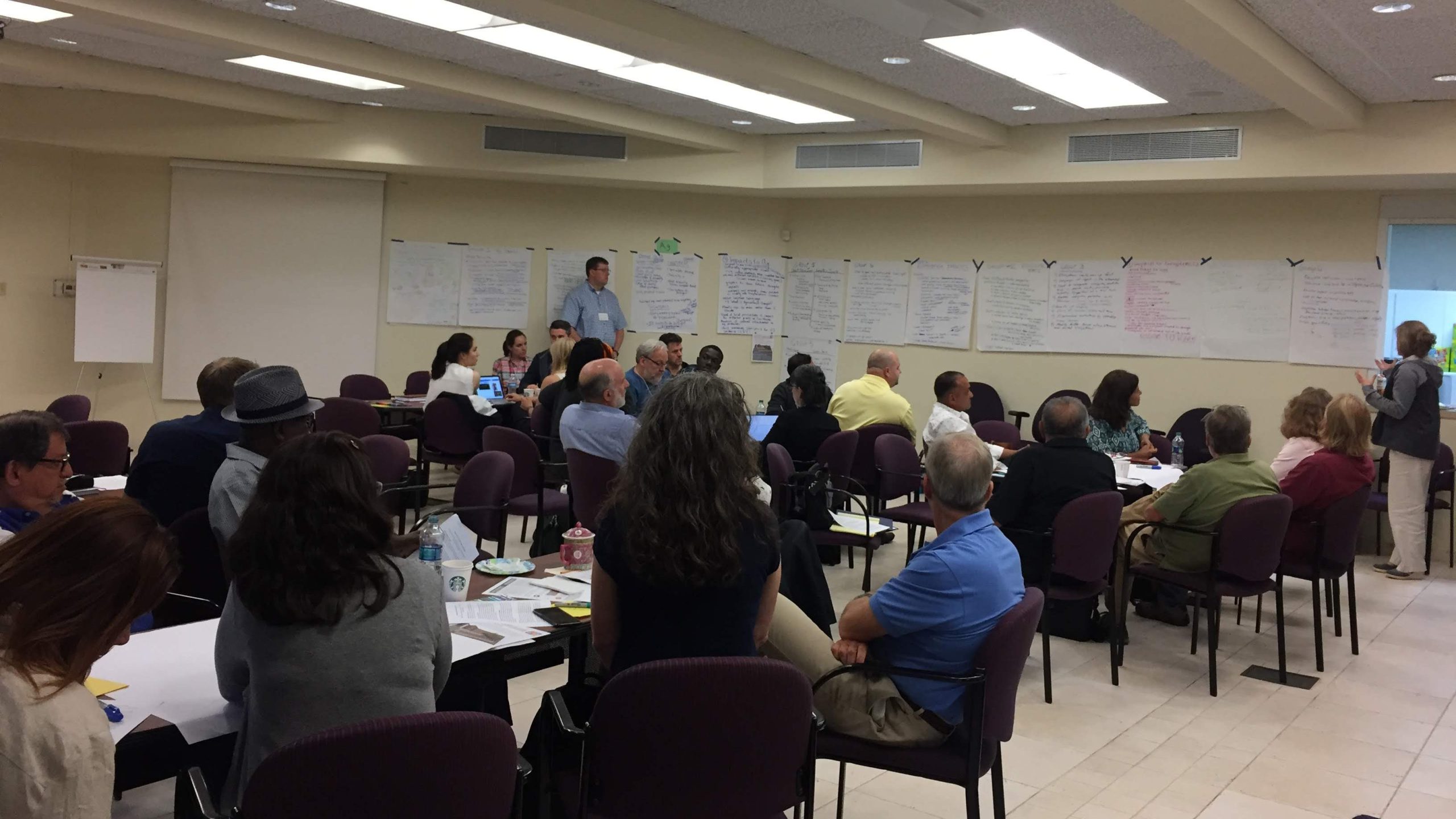Workshop Participants Discuss Impacts and Management of Drought in the U.S. Caribbean


More than 50 scientists and natural and cultural resource managers gathered in San Juan, Puerto Rico on May 30-31 to collaborate at a workshop organized by the USGS National Climate Adaptation Science Center (NCASC). The need for the workshop was identified at the Southeast Ecological Drought Workshop held at NC State University in Fall 2016. Several staff from the Southeast CASC participated. The U.S. Caribbean Drought Workshop was hosted by the USDA Caribbean Climate Hub. Purposes of the workshop were: (a) to support managers from multiple sectors by synthesizing information on past and present drought impacts and identifying innovative solutions for adaptation planning in the context of projected future drought and climate conditions and the unique situation of island communities; and (b) to bring awareness and appreciation to the continental U.S. of the acute impacts of drought faced by island communities.
Participants shared data and contributed expertise for a synthesis of the State of the Science on drought impacts to agricultural, ecosystem, and water supply sectors in Puerto Rico and the U.S. Virgin Islands. Topics included the following:
- Define what drought looks like in the region by synthesizing drought impacts to different sectors, including:
- Identifying lessons learned from past drought effects (e.g. 2015)
- Highlighting key similarities and differences in terms of impacts between sectors
- Identify available data and information for drought monitoring, as well as information gaps to support drought management
- Discuss future drought scenarios and thresholds, and what projected future conditions will mean for managers.
Since the 1950s, the U.S. Caribbean has experienced at least seven major droughts. The most recent regional drought, which occurred from 2014–2016, resulted in water rationing for 1.2 million people and over $14 million in agricultural losses. It’s clear that temperatures and seasonal rainfall patterns in the U.S. Caribbean are changing, and conditions are projected to become more variable in the future.
Results of the workshop will be incorporated into fact sheets and other products that summarize potential future impacts and adaptation options for different sectors.
As part of the workshop, NC State University and NCASC led a project to collect oral histories from several participants. Products of this effort will be videos of narrative stories that describe the societal/cultural impacts of drought on island systems historically, and the unique constraints that islands face when dealing with drought.
- Categories:
